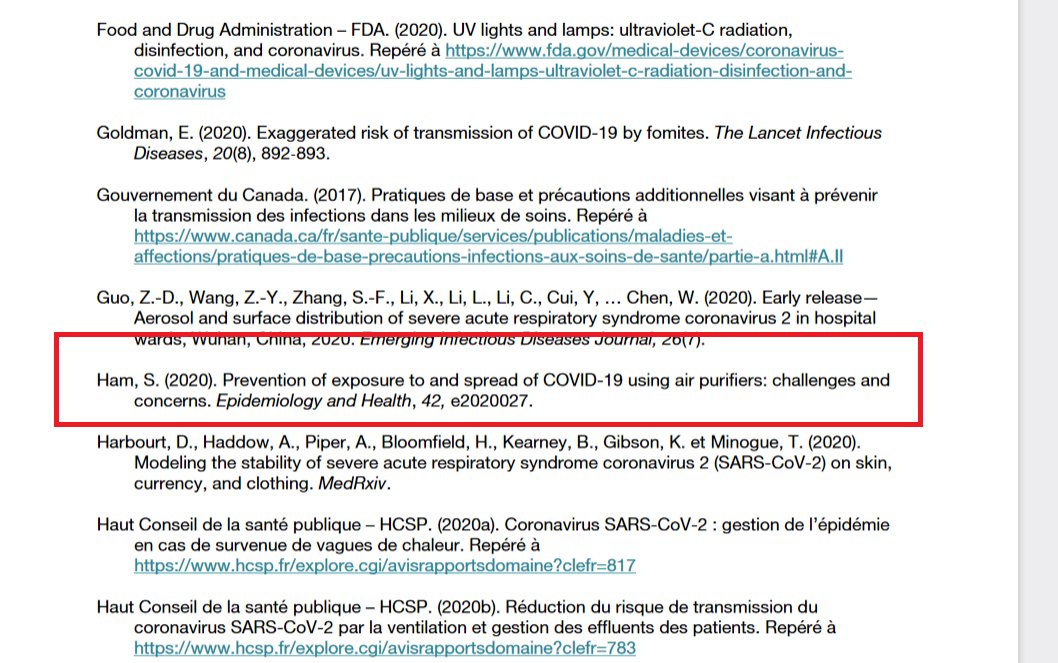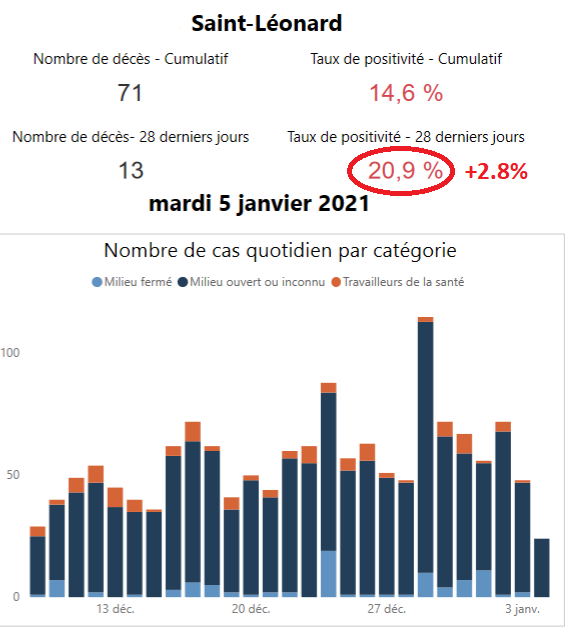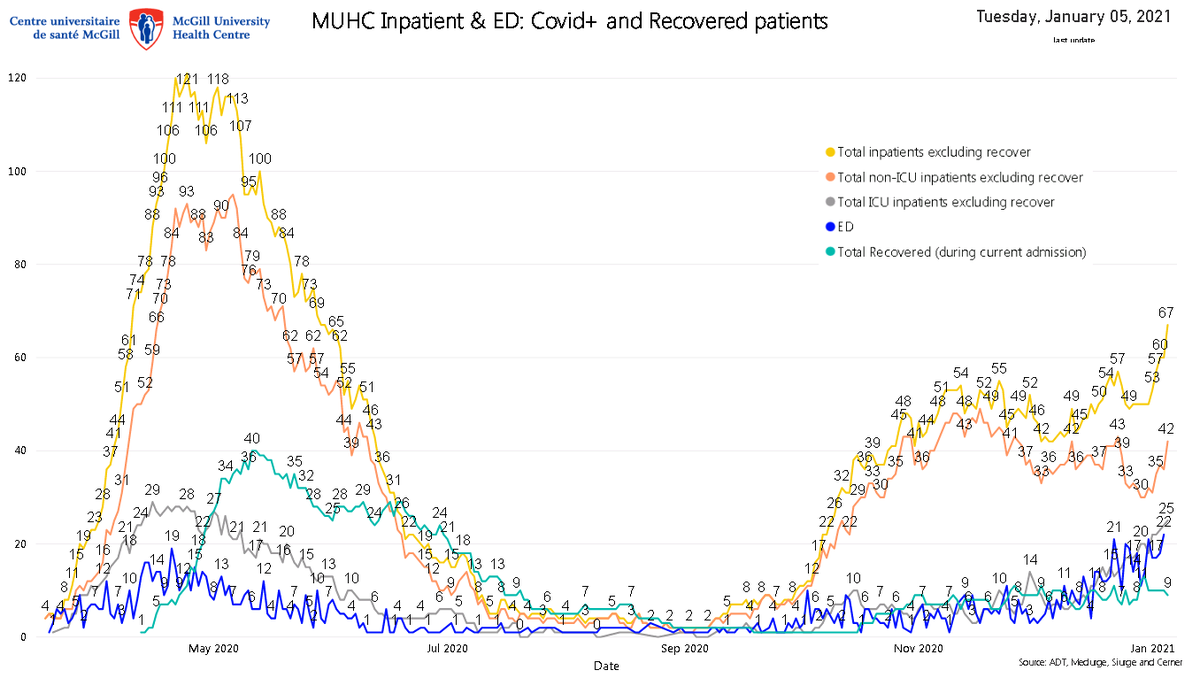
1) Since Dec. 16, the day before Quebec schools closed due to the #COVID19 resurgence, the number of active cases among students and staff stood at 5,156. Since then, that number has plummeted to 487. In this thread, I'll focus on the risks involved with Monday's return to class. 

2) Authorities have acknowledged that closing schools has led to a drop in #COVID19 cases among elementary and high school students. Yet unlike southern Ontario, which will keep its schools closed until Jan. 28, elementary school students here will have to return to class Monday.
3) The fact that Grades 5 and 6 students will now have to wear masks in class all day long suggests Quebec authorities acknowledge that overcrowded and poorly ventilated schools can cause transmission of the #coronavirus. Yet there are no plans for portable air purifiers.
4) Let’s look at the data another way. On Dec. 16, the Institut nationale de santé publique du Québec (INSPQ) recorded 184 #COVID19 cases among children up to the ages of 9. On Jan. 3, the most recent date available, the INSPQ recorded 150 cases in this age group. 
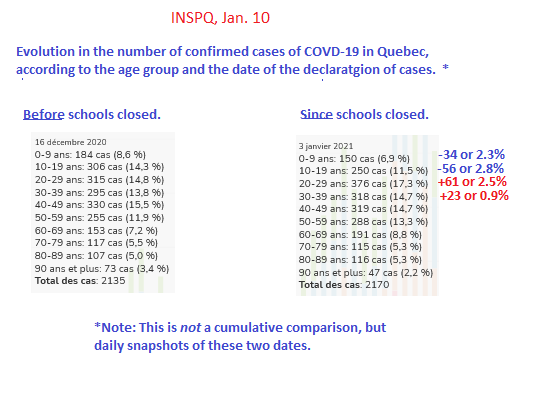
5) On Dec. 16, there were 306 confirmed #COVID19 cases among the 10-to-19 age demographic. But on Jan. 3, there were 250 cases. This trend suggests that closing schools during this period resulted in a drop in cases in these two cohorts. 

6) What’s interesting to note is that cases have appeared to rise during the so-called holiday pause among workers aged 20 to 39. Given that essential businesses are to remain open, will the four-week curfew launched Saturday have an impact on this demographic? 
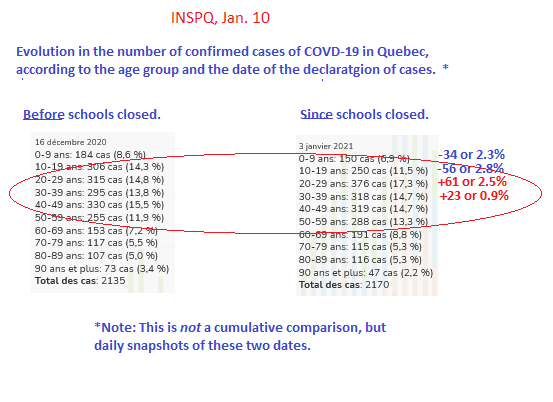
7) Despite the closing of non-essential businesses since Dec. 25, the number of workplace #COVID19 outbreaks across the province rose by 18 to 599 on Saturday. The total number of clusters in Quebec inched up by five to 1,254. But they’re down from a high of 1,678 on Dec. 21.
8) Meanwhile, Montreal posted 1,071 #COVID19 cases Sunday, down from 1,531 the day before. The city’s seven-day rolling average is still alarmingly high at 49.05 cases per 100,000 residents, almost double the threshold set by Harvard University to impose stay-at-home orders. 

9) At the neighborhood level, the borough of Saint-Léonard — which has declared a #COVID19 positivity rate of 20.9% — reported the highest number of cases in the metropolis: 137. But the chart below shows that three other health districts also each posted more than 100 cases. 

10) For context only: Since Jan. 1, 115 #COVID19 fatalities have been reported in Montreal, raising its death toll to 3,977. In contrast, 67 people in the city of Paris have lost their lives to the #pandemic since the start of the year, for a death toll of 2,744. End of thread. 

• • •
Missing some Tweet in this thread? You can try to
force a refresh



